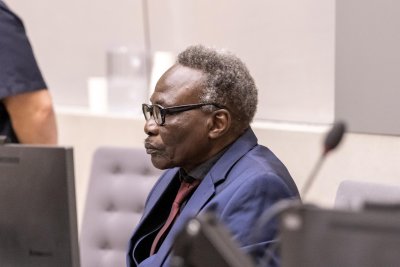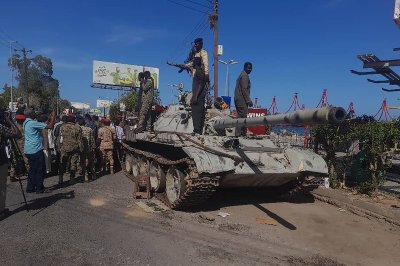ICC convicts militia leader Ali Kushayb of war crimes in Darfur

Ali Muhammad Ali Abd-Al-Rahman, also known as “Ali Kushayb,” was convicted by the International Criminal Court Monday for war crimes and crimes against humanity for his role in the conflict in Sudan’s Darfur region. Photo by International Criminal Court/Flickr
Oct. 6 (UPI) — The International Criminal Court convicted Ali Muhammad Ali Abd-Al-Rahman for committing human rights atrocities as the infamous leader of the Sudanese militia known as the Janjaweed.
Prosecutors hailed the conviction of Abd-Al-Rahman, also known by his nom de guerre Ali Kushayb, as the first verdict against a militia leader for waging a brutal campaign of ethnically motivated violence two decades ago against the civilian population in Sudan’s Darfur region.
The conflict in Darfur is considered the first genocide of the 21st century and unfolded between 2003 and 2020, when ethnic-based rebel groups took up arms against Sudan’s autocratic government. In response, the Sudanese government unleashed its own militias including the Janjaweed, whose name means “devils on horseback.”
The United Nations estimates that roughly 300,000 people died and another 400,000 were forced to flee to neighboring Chad.
The panel of judges overseeing the case in The Hague found that Al-Rahman was responsible for overseeing thousands of government-allied forces that carried out mass executions, torture and the burning and pillaging of entire villages.
“The conviction of Mr Abd-Al-Rahman is a crucial step towards closing the impunity gap in Darfur,” Deputy Prosecutor Nazhat Shameem Khan said in a statement. “It sends a resounding message to perpetrators of atrocities in Sudan, both past and present, that justice will prevail, and that they will be held accountable for inflicting unspeakable suffering on Darfuri civilians, men, women and children.”
First charged in 2007, Al-Rahman was on the run for 13 years before surrendering to authorities in the Central African Republic. He has denied the charges and his defense argued during the trial that he had been misidentified.
The court’s prosecutors are still pursuing warrants against Sudan’s former President Omar al-Bashir, former Interior Minister Ahmad Harun and ex-Defense Minister Abdel Raheem Hussein.
Tigere Chagutah, a regional director for Amnesty International, said in a statement following the verdict that the conviction should serve as a warning to those involved in the current conflict in Sudan, where the paramilitary group Rapid Support Forces is accused of committing genocide.
“This long overdue verdict goes some way in providing justice for the victims of Ali Kushayb and should serve as a significant milestone in the pursuit of justice for crimes committed in Darfur more than two-decades ago,” Chagutah said.


